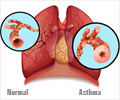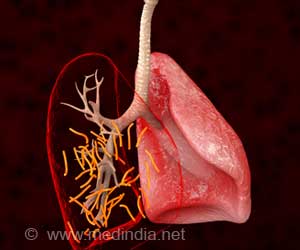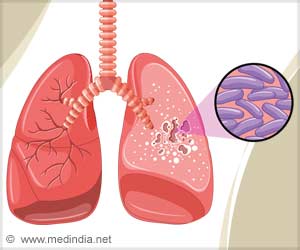Asthma, a respiratory disease can affect anyone, irrespective of age or lifestyle. Here are a few Ayurveda remedies you can use to control the condition.

Asthma is known as Tamak Rog in Ayurveda and can happen to anyone, irrespective of age or lifestyle. The disease is observed in children as much as it is prevalent in the seniors. Due to blockage in the respiratory channel caused by Kapha, Vata is obstructed, which then propagates throughout the body, eventually it becomes lodged in the respiratory channel causing asthma – a disease that causes untold misery to the sufferer. Ayurveda describes five different types of respiratory diseases, which is identified either by understanding the symptoms and imbalances in the dosha profile of the patient. Let us take a look at the different types of breathing diseases:
- Shudra Swasha: Consuming foods of heavy consistency or eating a very heavy meal or working under stress can cause temporary breathlessness, which is known as Shudra Swasha. There are not too many symptoms in this disease, and in most cases, taking rest for a few hours is enough to get rid of the symptoms.
- Tamak Swasa: Tamak Swasha is the Ayurvedic equivalent of Bronchial asthma and points towards a serious disease of the respiratory system. Severe asthma attacks can become life threatening. Patient in an asthma attack find it very difficult to breathe and their eyes roll back. Relief is hard to achieve unless the patient expels phlegm. Among all the breathing disorders mentioned in Ayurveda, this is the most worrying.
- Udharva Swasha: This is a disease of the respiratory system in which people experience general difficulty in breathing. Exhaling is easy but and it takes longer for the person to inhale. Patients experience malaise, nervousness and suffocation due to which the person may look scared and gaze at different directions, as if looking for help. In severe cases of asthma attack, the patient may even become unconscious.
- Mahan Swasha: Mahan Swasha causes a lot of trouble for the sufferer, breathing is associated with gurgling sounds. A patient with this problem repeatedly attempts to breathe but cannot breathe. Nervousness sets in and the patient gazes in different directions, speaking becomes very difficult and may even become unconsciousness. Extreme cases may also lead to death.
- Chinn Swasha: This is a condition in which the sufferer cannot breathe and the person has to force hard to breathe. Swelling in the face is also observed in this case. Exhaustion and nervousness is also a common symptom accompanied by redness of the eyes. Inability to breathe can make the patient unconscious.
There are many known reasons of an asthma attack, but in recent times the reason that is predominant is polluted air that we breathe. This contains pollutants and irritants that trigger bouts of coughing and blocks the respiratory channel. Due to mucus formation, the breathing channel becomes contracted causing breathlessness. Besides that, here are some more reasons that are associated with asthma attacks:
- Dust raised due to cleaning the house
- Fur from pet animals
- Perfumes and perfumed cosmetics
- Common cold, flu or viral infections
- Smoking or drinking alcohol
- Food allergies
- Hormonal changes
- Medicinal reactions or side effects
- Seasonal factors such as excessive cold
- Stress and tension
- Consuming processed or junk food
- Consuming foods that increase Kapha and Vata
- Hereditary
In order to prevent asthma attacks, the patient should monitor symptoms and take necessary steps in consultation with care provider. In most cases, emergency services may be necessary, hence it is advisable to keep emergency contact numbers handy. Some of the commonly seen symptoms before and asthma attack are tightening of the chest, feeling of congestion and suffocation and short breathes.
Advertisement
Asthma can be properly managed with Ayurvedic treatment. Consult an ayurvedic doctor to get proper treatment for your condition. Here, we have some useful tips to help you manage the disease and prevent flare ups.
Advertisement
- Consume easy to digest and light meals. Choose fresh and nutritious food items.
- Spices such as garlic, black pepper, ginger are helpful.
- Dates and raisins are healthy foods and good for overall health.
- Massage with til (sesame) oil
- Tulsi and ginger with honey is a good combination that helps in alleviating breathing problem.
- Add 2 teaspoons meethi (fenugreek seeds) to 1 litre of boiling water. Let it cool and strain. Now grind a 2-inch ginger chunk and extract the juice, add it to the water along with a spoon of honey. Mix the solution well. Drinking a glass of this concoction daily will help with breathing problems.
- Practise yoga under the supervision of an expert. Asanas such as Bandkonashana, Bhujangashana, Matsyasana are recommended.
Source-Medindia














